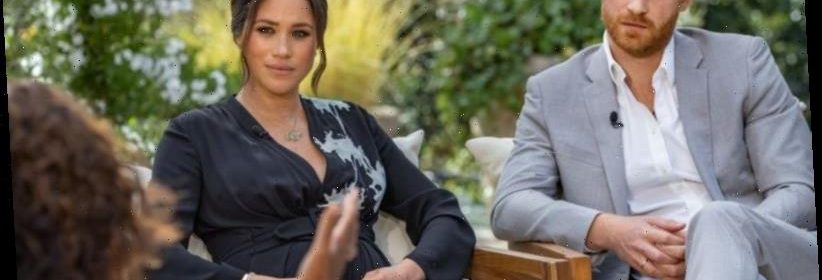Royal ructions raise issues close to home

There are few families in the world that have captured the attention of so many for so long. The British monarchy has certainly provided plenty to talk about over the years. It’s been a story with its fair share of highs and lows.
The Oprah Winfrey interview this week of Prince Harry and Meghan, Duchess of Sussex, undoubtedly added another colourful chapter to a family drama that has, over the years, played out sometimes as a reality TV show, sometimes as a soap opera, and often as an expression of celebrity culture.
The Duke and Duchess of Sussex talk to Oprah Winfrey.
When Meghan walked down the aisle at her wedding in May 2018, hand in hand with her father-in-law, Prince Charles, and when Bishop Michael Curry – the first black presiding bishop of the Episcopal Church – gave his sermon about the healing power of love, it seemed Britain’s first family was ready to confront some of its racial and colonial history.
Then, on Meghan and Harry’s account, it all fell apart, demeaningly, over the title, the access to security, and the skin colour of their as-yet-unborn child.
Their claim that a senior member of the royal family expressed concern about how dark their child’s skin would be, and their disquiet over the negative press coverage they say was driven by the new royal’s mixed race, has triggered furious debate in Britain.
While there is claim and counter-claim over the veracity of what was said – the controversy even prompted the Queen to release a statement saying “recollections may differ” – the issues raised cut to the heart of some very important modern debates.
In a nation where the Black Lives Matter movement garnered broad support, these allegations against the royal family and the media are a very direct condemnation of two of the most powerful institutions in the country.
But neither seems to want to engage. The monarchy has chosen to deal with the matter in-house and the Society of Editors, which represents senior newspaper editors across Britain, went public with a statement denying the media industry was bigoted or racist.
The lack of self-awareness by the Society of Editors was made obvious by a stinging statement released by nearly 170 British journalists of colour, who described the Society of Editors’ “knee-jerk” statement as “laughable” and proof the industry was “in denial”.
The refusal of these institutions to openly look at their failings is a disheartening sign at a time when it is clear that any reckoning on race requires at times painful reflection on past attitudes and practices.
The other pressing issue that came out of the interview was the claim by Meghan that her mental health had deteriorated to such a degree that she considered suicide. This has alarming parallels with that of her late mother-in-law, Diana, who famously suffered her own mental health crises and was made by the institution of the royal family to suffer in silence behind closed doors.
Meghan’s willingness to speak so openly is a testament to the work of many before her in recent years who have been willing to use their own personal experience to help raise awareness of these issues. But the fact she, like Diana, was taken with such high hopes into a royal family that has chewed them up and then spat them out, reflects poorly on this institution that sits at the pinnacle of Britain’s and Australia’s constitutional arrangements.
So what are we, as Australians, to make of all this? Most of us, even the republicans among us, watched the spectacle of the interview – the TV ratings were off the charts – but many, like The Age, would have been wondering afresh why the members of this dysfunctional family, by heredity, are destined to continue providing us our head of state.
Perhaps it’s time once again to review those arrangements.
Note from the Editor
The Age’s editor, Gay Alcorn, writes an exclusive newsletter for subscribers on the week’s most important stories and issues. Sign up here to receive it every Friday.
Most Viewed in World
From our partners
Source: Read Full Article

